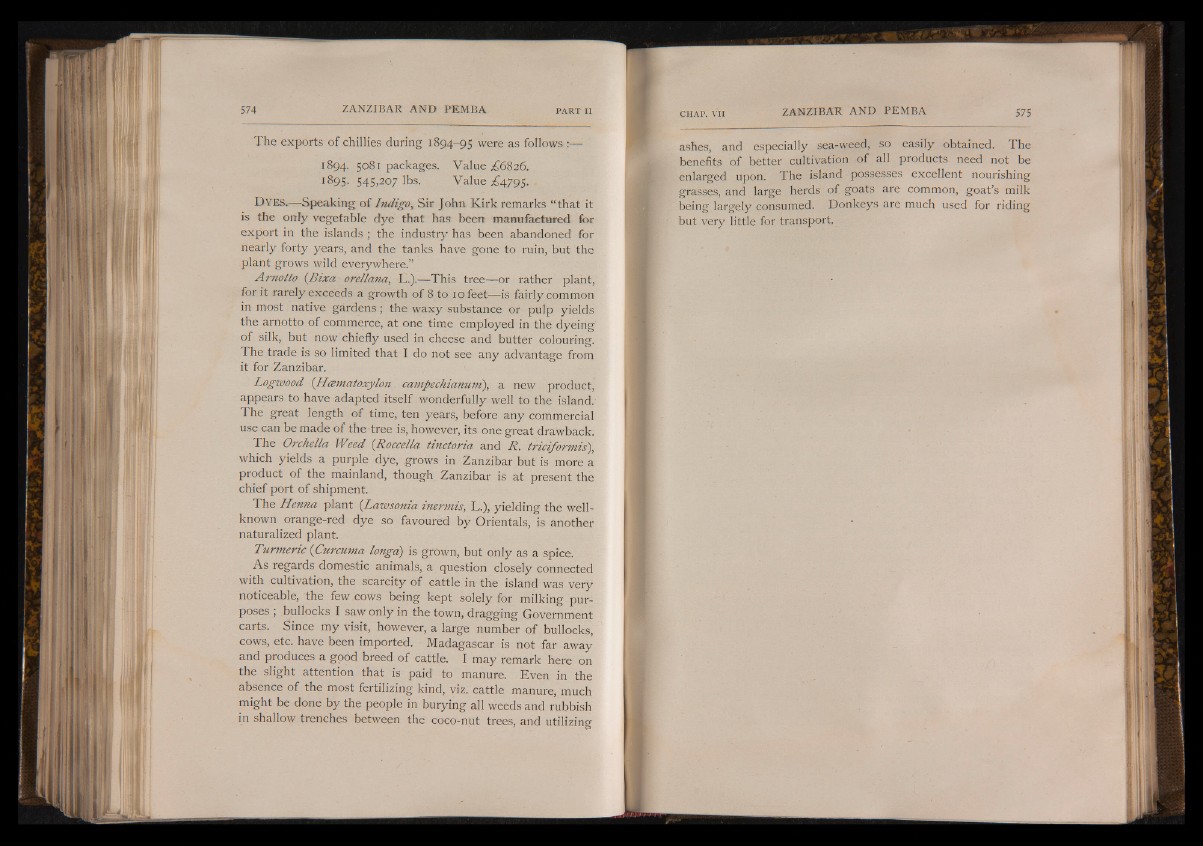
The exports of chillies during 1894-95 were as follows :—
1894. 5081 packages. Value £6826.
1895. 545,207 lbs. Value ¿4795-
D y e s .— Speaking of Indigo, Sir John Kirk remarks “ that it
is the only vegetable dye that has been manufactured for
export in the islands ; the industry has been abandoned for
nearly forty years, and the tanks have gone to ruin, but the
plant grows wild everywhere.”
Arnotto (Bixa orellana, L.).— This tree— or rather plant,
for it rarely exceeds a growth of 8 to 10 feet— is fairly common
in most native gardens; the waxy substance or pulp yields
the arnotto of commerce, at one time employed in the dyeing
of silk, but now chiefly used in cheese and butter colouring.
The trade is so limited that L do not see any advantage from
it for Zanzibar.
Logwood ('Hcematoxylon campechianum), a new product,
appears to have adapted itself wonderfully well to the island.
The great length of time, ten years, before any commercial
use can be made of the tree is, however, its one great drawback.
The Orchella Weed (Roccella tmctona and R. triciformis),
which yields a purple dye, grows in Zanzibar but is more a
product of the mainland, though Zanzibar is at present the
chief port of shipment.
The Henna plant (Lawsoma wermis, L.), yielding the well-
known orange-red dye so favoured by Orientals, is another
naturalized plant.
Turmeric (Curcuma longa) is grown, but only as a spice.
As regards domestic animals, a question closely connected
with cultivation, the scarcity of cattle in the island was very
noticeable, the few cows being kept solely for milking purposes
; bullocks I saw only in the town, dragging Government
carts. Since my visit, however, a large number of bullocks,
cows, etc. have been imported. Madagascar is not far away
and produces a good breed of cattle. I may remark here on
the slight attention that is paid to manure. Even in the
absence of the most fertilizing kind, viz. cattle manure, much
might be done by the people in burying all weeds and rubbish
in shallow trenches between the coco-nut trees, anLd utilizing
ashes, and especially sea-weed, so easily obtained. The
benefits of better cultivation of all products need not be
enlarged upon. The island possesses excellent nourishing
grasses, and large herds of goats are common, goat’s milk
being largely consumed. Donkeys are much used for riding
but very little for transport.